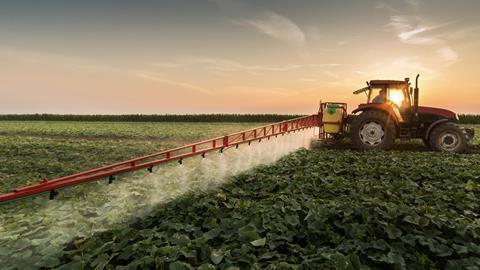Average incomes fell by one per cent in horticulture, while other farming sectors saw growth
Horticultural farm income in England has fallen in the last year, according to official government figures, with the sector one of only two in farming that have seen a decline.
Average income on horticulture farms fell by one per cent to £52,700 in 2024/25, newly released Defra figures show. Agricultural output rose by just over a quarter, driven by increases across virtually all horticultural enterprises – particularly soft fruit and strawberries (with a 139 per cent increase) and glasshouse flowers, bulbs and nursery stock.
However, Defra noted that agricultural costs rose to a greater extent than output, with casual labour more than doubling and contract costs 75 per cent higher.
That resulted in a return on agricultural activities of £28,100, which was 17 per cent lower than 2023/24. Output from diversified activities, which Defra observed are often an important revenue stream for horticulture farms, fell by 12 per cent, with increased output from building rental only partially offsetting reductions for other enterprises.
Associated diversification costs reduced to a greater degree than output, meaning that overall, net income from the diversification cost centre was six per cent higher than 2023/24 at £15,900. Income from agri-environment activities increased to £7,000 while the delinked Basic Payment was £1,800.
Volatility ‘must be recognised in Budget’
Reacting to the new figures, the NFU said that the volatile nature of farm business income must be acknowledged by the government and greater stability provided in the upcoming Budget.
The union said the new figures illustrated the significant variation of annual income, which makes planning and investment incredibly difficult.
While the survey, compiled between March 2024 to February 2025, shows an increase in income for most sectors except horticulture and specialist pig production, it doesn’t cover the challenging 2025 harvest or the impact of the summer’s drought on things like animal feed costs, the NFU pointed out.
It added that the data follows a longer-term trend of considerable variation, where some sectors have seen peaks in income being immediately followed by major falls.
Looking ahead to the upcoming Budget, NFU president Tom Bradshaw said: “The impact of volatility is written large in these new Farm Business Income figures. The farming sector has always had to deal with elements beyond our control which impact what we earn – from increasingly extreme weather to changing global markets.
“While farmers understand that our income will vary year to year, it doesn’t seem like the government does. Nor does it seem to recognise its role in minimising volatility at home where possible. The snap decision to implement a crippling tax on family farm businesses at the last Budget is evidence of that – many will simply not be able to afford to pay it.
“If farm businesses are to successfully navigate the challenges outside our control, there has to be greater stability in our own domestic policy. While arable prices will always be determined by the global market, there are decisions that our government has taken around the US trade deal and bioethanol that have dramatically reduced demand.
“There are also decisions it can take in the future negotiations around the EU SPS deal and access to scientific solutions for gene editing and plant protection products. For our dairy farmers, driving exports abroad would provide another stable source of income and help build resilience.
“If the government truly believes in growth, it cannot keep taxing businesses into the ground. Some horticulture businesses have seen employment costs increase by hundreds of thousands of pounds due to last year’s Budget tax rises and now face the prospect of much higher electricity standing charges.
“Meanwhile family farms across the UK are halting investment or anticipating having to sell parts or all of their farm to pay an inheritance tax bill this government promised it wouldn’t impose. How is this conducive to economic growth?
“At the upcoming Budget, the Chancellor has the chance to do right by Britain’s farmers and rethink the family farm tax. The Treasury can also incentivise investment and support business planning through increasing the Annual Investment Allowance and introducing enhanced capital allowances.
“These would not only send a clear signal that our government understands how agriculture businesses work, but that greater stability is needed to build resilience, boost confidence and invest in the future of homegrown food.”




